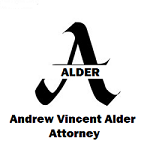What is involved in a trust administration, and how does it compare with a probate?
Many persons elect to establish a revocable inter vivos trust as the centerpiece of their estate plans instead of just last wills and testaments so that they can avoid a probate of part or all of their estates upon their deaths. If the legal title to stet property is held by the Trustee of his or her trust, then the administration and distribution of that property upon the individuals death is handled much more simply, much more quickly, and at much less expense than if that property had to be probated. A trust administration is NOT a court-supervised process, yet its ultimate goal is also the transfer of property from an individual who has died (the “decedent”) to that individual’s beneficiaries who are identified in his/her revocable living trust.
The advantages of a trust administration over a probate proceeding include a potentially quicker distribution of the property to beneficiaries, a greater degree of privacy due to there being no court supervision of the process, and in most cases, a much less expensive manner of distributing property to beneficiaries.
One disadvantage of a trust administration as compared to a probate proceeding is that there is no court supervision of the process. If a dispute arises between beneficiaries regarding the distribution of property, it is more difficult to resolve without resorting to the court for assistance. Another disadvantage is the longer period of time during which the decedent’s creditors can file claims against the trust for payment of the decedent’s debts. Generally, creditors have one year from a person’s date of death to file claims against his or her estate (if there is no probate of the estate), whereas creditors have only four months to file a claim against an estate that is being probated.
Costs to administer a trust are generally much lower than those assouciated with a probate. Probate fees include the compensation paid to the Executor of the estate and to the Attorney whom the Executor retains to assist him or her with the administration of the estate. Such compensation is fixed by law. By contrast, the fees to administer a trust, which include the fees paid to the Trustee and to the Attorney whom the Trustee retains to assist with the trust administration are not set by law. Usually, these fees are paid with some reference to the actual amount of time needed to administer the trust. This often results in a much lower cost to the estate than if a probate were necessary. In addition, there are no court filing fees or fees paid to probate referees to appraise the property in the trust.
In general, the probate fees paid to an Executor amount to about 2.5% of the gross value of the probate estate for ordinary services. The probate fees paid to the Executor’s Attorney amount to an additional 2.5% of the gross value of the probate estate for ordinary services. Therefore, for ordinary services, up to 5.0% of the gross value of the probate estate may be paid in probate fees. By contrast, the fees to administer a trust with the same property at the same value are usually less than half as much as would be due were that property to be probated.



